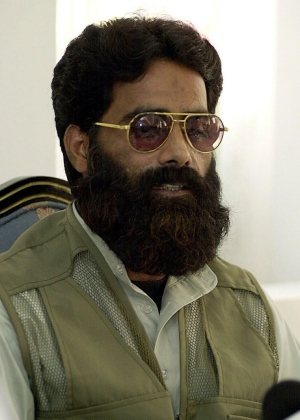
Al-Qaeda Exploits Kashmir Conflict to Expand Operations to India
Publication: Terrorism Monitor Volume: 8 Issue: 39
By:

It appears increasingly clear that al-Qaeda is intent on striking in India. In fact, the organization provided assistance in the 2008 Mumbai attacks and may already have been connected to bomb strikes this year. India has remained largely untouched by al-Qaeda directed violence, but the nation is discussed in the group’s propaganda, along with the Kashmir conflict. Until recently al-Qaeda seemed to possess little ability to strike in India itself. That may be changing. With the rise of Mohammed Ilyas Kashmiri, an al-Qaeda commander and strategist with years of experience gained fighting in Kashmir and conducting operations in India, the organization has likely augmented its capability to strike within India.
A number of conditions exist which al-Qaeda may attempt to exploit. Significant tensions continue to exist between India and Pakistan over the 2008 Mumbai attacks, particularly with recent revelations of involvement by Pakistani Inter-Services Intelligence (ISI) operatives and military personnel. The resurgent separatist movement in the form of mass demonstrations in Kashmir is bringing increased attention to that conflict. Continued Pakistani military operations in Pakistan’s tribal areas along with U.S. drone attacks are placing significant pressure on al-Qaeda, which may seek to alleviate this by inflaming tensions between Pakistan and India. The 2008 Mumbai operation carried out by Lashkar-e-Taiba (LeT) already demonstrated the effect such an attack could have in forcing Pakistan to boost its military forces on the border with India. India also offers an easier route to strike at Western-connected or Jewish/Israeli targets than further abroad in the United States or Europe.
Of the major jihad-connected conflicts taking place worldwide, Kashmir (and by extension India) have remained areas in which al-Qaeda has failed to establish any significant presence and influence. Involvement by Indian Muslims in al-Qaeda has always been extremely limited. Other Pakistan-based groups, such as the LeT, have been much more effective in establishing Indian networks and recruiting among Indian Muslims. In Bin Laden’s 1996 “fatwa” declaring war on the United States, Kashmir was cited as a location where Muslims were being “massacred” and an example of the West’s war on Islam (al-Quds al-Arabi, August 23, 2006). As early as 1996, Khalid Sheikh Mohammed was said to have visited India and admitted to planning an attack against the Israeli Embassy there (The Hindu, December 21, 2009). The Kashmir conflict and India have been mentioned in a number of the group’s statements since the 1990s, but with little indication there was any follow-up to the threats. However, al-Qaeda did develop extensive ties with many Pakistan-based groups which operate in India, such as LeT and Harakat-ul-Mujahideen (HuM).
An initial series of possible Indian-based al-Qaeda plots in 2001 and 2002 appear to have been disrupted or fizzled out. In 2001 the first serious evidence of an al-Qaeda directed plot in India surfaced with the arrest of Sudanese national Abd al-Raouf Hawash for planning a car bomb attack against the U.S. Embassy in Delhi (Outlook India, June 22, 2001). A possible 2002 joint HuM-al-Qaeda plot to kill Western tourists in India may also have been disrupted. [1] The year 2006 brought a number of reports about al-Qaeda’s involvement in India, including possible airline hijackings and plots against the Taj Mahal (Asia Times, August 22, 2006; see also Terrorism Focus, November 21, 2006). In 2006-2007 there were two separate occasions in which individuals claimed to be part of a newly established al-Qaeda faction in India, but nothing was heard from them afterwards (The Asian Age [Mumbai], June 8, 2007; Economic Times [New Delhi], June 9, 2007).
Recent years have brought a renewed focus from al-Qaeda on India with Ilyas Kashmiri likely at the forefront of efforts to strike there. Prior to his involvement with al-Qaeda, Kashmiri led Harakat-ul-Jihad Islami’s (HuJI) and Brigade 313 operations in Jammu and Kashmir (J&K) and India. In June, a posthumous audio message issued by al-Qaeda’s former senior commander Mustafa Abu al-Yazid stated that Kashmiri leads one of the brigades of “Qaedat al-Jihad in Kashmir” (As-Sahab Media Foundation, June 15). According to David Headley, the American jihadist arrested in connection with the Mumbai attacks, this group will work under Kashmiri’s Brigade 313 to “carry out attacks in India and other non-Islamic countries” (Outlook India, June 15). Along with identifying Kashmiri’s role, al-Yazid further claimed that al-Qaeda’s Kashmir faction carried out the June bombing of the German bakery in Pune, India, which killed 17 people (including two foreigners) (As-Sahab Media Foundation, June 15). Though there is no evidence the bombing was actually the work of al-Qaeda, the bakery was one of the sites investigated by David Headley (Outlook India, October 11). Kashmiri’s Brigade 313 also issued threats against international sports events in India, including the Commonwealth Games (Asia Times Online, February 10). These threats may have been followed up on in April when bomb blasts occurred outside a cricket stadium in Bangalore (NDTV, April 17; Hindustan Times, April 18).
Along with the continuing information emerging regarding Headley’s role on behalf of Kashmiri and the LeT in India, the recent statements by al-Yazid and Kashmiri appear to point toward a much more serious al-Qaeda threat to India. Headley’s interviews have disclosed a range of possible targets in India and shed further light on the militants’ intentions in India. Oil installations, a software engineer’s conference, the National Defence College, the Prime Minister’s residence and Jewish centers were among the various locations where Headley conducted his surveillance (Outlook India, October 11). Following the Mumbai attacks, Kashmiri wanted Headley to carry out surveillance on Israeli locations in India. Kashmiri was said to be planning possible attacks on these sites in response to Israel’s invasion of Gaza in 2009 (Indian Express, April 6). Some of the assailants and handlers in the Mumbai attacks were overheard in communication intercepts referencing Kashmiri’s Brigade 313, which may point to an al-Qaeda role in that operation (NDTV, August 7).
Al-Qaeda’s senior ranks have always lacked a veteran commander of the Kashmir jihad – a void now filled by Ilyas Kashmiri. Indian intelligence agencies are reported to believe that Kashmiri now heads up al-Qaeda’s operations in the country (Rediff.com, September 27). The jihadist insurgency in Kashmir has lessened in intensity while a terrorist campaign against India appears to have become the priority. Other Pakistan-based jihadist groups have already been successful in establishing networks in India, allowing them to conduct attacks on a fairly regular basis.
Al-Qaeda will likely seek to create fissures between India and Pakistan and possibly provoke communal tensions in India. LeT’s attack on Mumbai in 2008 and the joint LeT/Jaish-e-Mohammad (JeM) attack on the Indian Parliament in 2001 demonstrated the immense capability of jihadist groups to impact relations between these countries. Occasional collaboration by Kashmiri and al-Qaeda with the LeT (or dissident LeT factions) and HuJI would provide a significant avenue for al-Qaeda to attack in India. Aside from striking in India itself, al-Qaeda could hit Indian-connected targets regionally, as with major attacks in 2008 and 2009 against the Indian Embassy in Kabul. Indian jihadist networks, such as the Indian Mujahideen (IM), may also present an avenue for al-Qaeda into India. According to Indian authorities, IM is believed to have carried out the Pune attack. Arrested operatives said they were shown surveillance videos made by Headley (Zeenews, February 16). Discussing the threat posed by al-Qaeda, Defense Secretary Robert Gates has stated, “Al-Qaeda, along with the LeT, is focusing on not only Pakistan but also on India” (Indian Express, January 20). Given the increased difficulty al-Qaeda has faced in attacking the United States and Europe, India offers an attractive alternative in which al-Qaeda would have much less difficulty in gaining access for its operatives to many American, Jewish/Israeli and European-connected sites.
Note:
1. Praveen Swami, “Al Qaeda in India,” India Frontline 19(1), January 5-18, 2002; “Was an al-Qaeda man held in Kashmir after 9/11?” DNA India, October 12, 2010.





